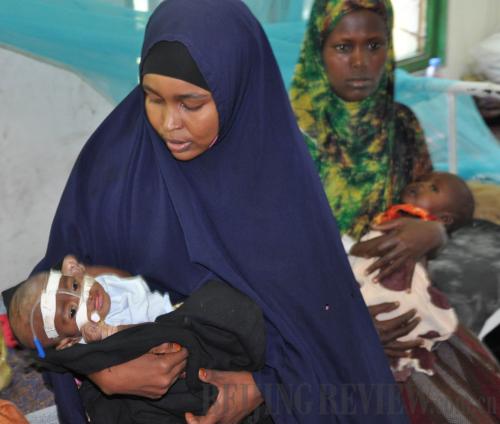| 
It was no secret that although the 15th African Union (AU) Summit in Kampala was to focus on maternal health care, recent terrorist attacks in the Ugandan capital on July 11 changed that.
Africa's leaders united in their commitment to show terrorist organizations like al-Shabab's that they will not be intimidated. With security beefed up in Kampala for leaders and representatives of 49 African countries, all agreed to continue focusing on resolving the ongoing violence in Somalia. The AU has opted to ramp up their figures of troops to Somalia from 6,000 to 8,000. This is a strong sign of African solidarity and needs to be commended.
However we need to see the same type of commitment and condemnation toward the unacceptable state of maternal health in Africa. Above the speeches, data and reports in the press, where is the missing fury about women dying during childbirth? Why are African leaders not as vociferous about this as they are about terrorism?
Under the Abuja Declaration in 2001, African heads of state committed to spending a minimum of 15 percent of their national budgets on health. Nine years later only six countries - Botswana, Rwanda, Niger, Malawi, Zambia and Burkina - are presently making this target. Jean Ping, Chairperson of the African Union Commission, told media in Kampala that it was agreed that a campaign on accelerated reduction of maternal mortality in Africa (CARMMA) be strengthened. The campaign has so far been launched in 16 countries.
"We want an Africa where women need not die because they are giving life," said Jean Ping.
But die they are, as according to WHO, a total of 99 percent of all maternal deaths occur in developing countries, where 85 percent of the population lives. Fourteen countries have maternal mortality ratios of at least 1,000 per 100,000 live births, of which all but Afghanistan are in Sub-Saharan Africa: Afghanistan, Angola, Burundi, Cameroon, Chad, the Democratic Republic of the Congo, Guinea-Bissau, Liberia, Malawi, Niger, Nigeria, Rwanda, Sierra Leone and Somalia. And it is not disease that dominates this tragedy as most of these deaths are from the normal biological process.
We need effective and efficient health systems, especially during pregnancy and birth, along with access to clean drinking water and lack of abuse from men. And unsurprisingly education, especially for women, is indispensable to the understanding of the dangers of poor maternal health practices.
Many say that as men by far make up the ongoing bulk of African leaders and attendees at the continent's summits and conferences, issues like maternal health will never be viewed with the same urgency as other matters such as security. There is no doubt that without security all else fails, but it cannot be at the expense of women dying during nature's most perfect process.
We need decisive action and the introduction of annual maternal deaths reviews, which can provide countries more precise statistics to drive home just on how serious maternal deaths in Africa are.
Eight new resolutions to address maternal and child deaths across the continent were adopted at the AU Summit. Let us hope that next year in July when these are reviewed the balance between life and death has shifted and mothers will look forward to giving birth without the fear of exchanging one life for another.
The Editor |